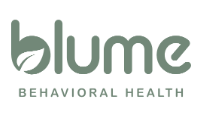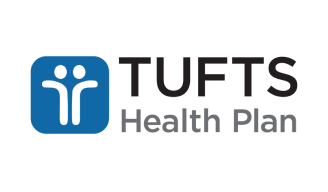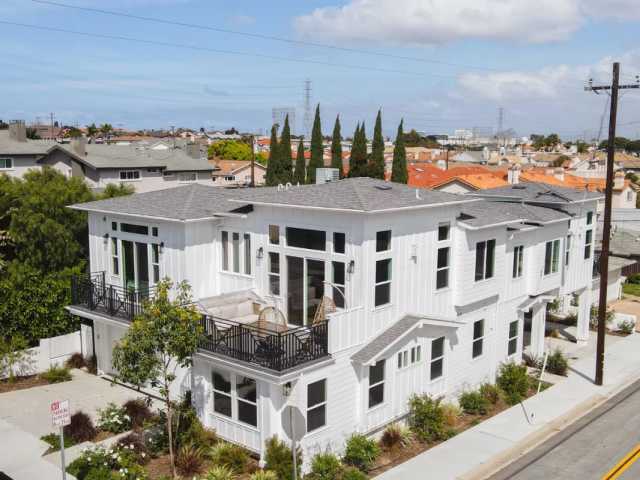
Redondo Beach, California, United States
Blume Behavioral Health - Girl's Facility
Verified
Verified
This provider’s information has been quality-checked by Recovery.com’s Research Team for accuracy and completeness, including center verification through appropriate third-party organizations.
Joint Commission Accredited
The Joint Commission accreditation is a voluntary, objective process that evaluates and accredits healthcare organizations (like treatment centers) based on performance standards designed to improve quality and safety for patients. To be accredited means the treatment center has been found to meet the Commission's standards for quality and safety in patient care.
Provider's Policy
To ensure that you have immediate access to the help you need, we accept all insurance providers. However, we don't accept Medicaid, Medicare, or state insurance.
Estimated Cash Pay Rate
The cost listed here ($35,000 - $47,000) is an estimate of the cash pay price. Center pricing can vary based on program and length of stay. Contact the center for more information. Recovery.com strives for price transparency so you can make an informed decision.
Highlights from the Center
Highlights
These highlights are provided by and paid for by the center.
Adolescents
Gender Separate Housing
Trauma Treatment
About Blume Behavioral Health - Girl's Facility
In Redondo Beach, this residential treatment center offers hope for teen girls ages 12-17 struggling with emotional, behavioral, or addiction challenges. With a commitment to real change, Blume provides gender-specific care in a close-knit 12-bed setting, allowing for individualized attention. In addition to a strong therapeutic program, they also offer mentorship, academic instruction, and they encourage parental involvement to round out their holistic treatment.
Find Meaningful Change beyond Traditional Therapy
Because every young mind is unique, the team of adolescent psychiatrists and psychologists work closely with teens and their families to provide top-tier clinical care with truly individualized support and attention for each client. While they rotate through a foundation of proven-effective therapies like cognitive behavioral therapy (CBT) and dialectical behavior therapy (DBT), they tailor them and other holistic therapies to the client’s main concerns. More tactile and creative therapies are also used— like sand tray, equine, play, and adventure therapy. The team believes that meaningful change can happen when reconnecting with life’s fun and exciting moments.
Uncover the Rewards of a Focused Reset
At Blume, can immerse in a therapeutic community, free from distractions, where they can uncover the core issues affecting their lives through intensive therapy. By participating in life-altering individual and group therapy sessions they gain a better understanding of their strengths and areas that need growth. These rewards not only impact the present, but set them up for success in the future.
Explore Coastline to City
In the vibrant city of Redondo Beach, the tight-knit 12-bed facility provides the perfect balance of privacy and community. With semi-private rooms, each teen girl has space to reflect and recharge. Beyond the comfortable amenities, the facility’s proximity to the coastline allows for outings and therapies that take advantage of both natural and urban beauty.
Read More

Insurance Accepted
Provider's Policy:To ensure that you have immediate access to the help you need, we accept all insurance providers. However, we don't accept Medicaid, Medicare, or state insurance.
Understand Teens and Gain Insight into Their World
The Parental Support Program guides families through the complexities of supporting a teenager with mental health struggles. Parents learn to navigate difficult conversations and strengthen their relationship with their child. On top of that, they’ll gain valuable insights into the pressures and emotions their teen faces. Blume’s community support network connects parents with others who share similar experiences, creating a powerful bond of understanding.
Master Life’s Everyday Decisions
Through engaging, practical lessons, teens learn how to communicate in ways that foster real connection, not just surface-level conversation. They gain confidence in making decisions, navigating challenges, and managing their time and money. The program also teaches emotional regulation by helping them understand and work with their emotions in a healthy way. At its core, the program is about helping teens become capable, compassionate people who show up for themselves and others.
Create a Turning Point through Meaningful Mentorship
The mentorship program gives teens something many are longing for—a genuine connection with someone who truly sees them. Each teen is thoughtfully matched with a mentor who understands their challenges and helps them navigate school, relationships, and emotions with curiosity instead of fear. For many, this kind of relationship can be a turning point, as it can reshape how a teen sees themselves and their future.
Don't Let Treatment Disrupt Education
The education program at Blume seamlessly integrates with their therapeutic services so that clients don’t miss a beat. Their teachers and tutors tailor their approach to the girls’ learning styles and needs. And the facility is filled with study areas and classrooms so they can focus on learning. Blume’s individualized support and flexible curriculum allows clients to grasp concepts and excel in their studies.

Center Overview
Estimated Cash Pay Rate
Adolescents
Teens receive the treatment they need for mental health disorders and addiction, with the added support of educational and vocational services.
Children
Treatment for children incorporates the psychiatric care they need and education, often led by on-site teachers to keep children on track with school.

Treatment Focus
This center specializes in primary mental health treatment and offers programs for co-occurring substance use. You receive collaborative, individualized treatment for whole-person healing.
Treatment
Specializations
Adolescents
Teens receive the treatment they need for mental health disorders and addiction, with the added support of educational and vocational services.
Treatment Services
Licensed Primary Mental Health
Some primary care providers offer mental health diagnosis and treatment. This can prevent patients from developing more serious conditions.
Residential
In a residential rehab program, patients live onsite, with access to daily treatment and 24-hour care. An average stay is 30-90 days.
Approaches
Evidence-Based
A combination of scientifically rooted therapies and treatments make up evidence-based care, defined by their measured and proven results.
Family Involvement
Providers involve family in the treatment of their loved one through family therapy, visits, or both–because addiction is a family disease.
Personalized Treatment
The specific needs, histories, and conditions of individual patients receive personalized, highly relevant care throughout their recovery journey.
Gender-Specific
Separate treatment for men or women can create strong peer connections and remove barriers related to trauma, shame, and gender-specific nuances.
Therapies
1-on-1 Counseling
Patient and therapist meet 1-on-1 to work through difficult emotions and behavioral challenges in a personal, private setting.
Meditation & Mindfulness
A practiced state of mind that brings patients to the present. It allows them to become fully aware of themselves, their feelings, and the present moment.
Mindfulness Therapy
This ancient practice can be mental, emotional, and even spiritual. In meditation, you focus your attention on the present moment without judgement.
Adventure Therapy
This experiential approach uses the physical and emotional challenges of outdoor activities as tools for personal growth.
Art Therapy
Visual art invites patients to examine the emotions within their work, focusing on the process of creativity and its gentle therapeutic power.
Experiential Therapy
With this approach, patients heal by doing. Therapists help patients process difficult emotions to speak, using guided activities like art or dance.
Family Therapy
Family therapy addresses group dynamics within a family system, with a focus on improving communication and interrupting unhealthy relationship patterns.
Conditions We Treat
Grief and Loss
Grief is a natural reaction to loss, but severe grief can interfere with your ability to function. You can get treatment for this condition.
Personality Disorders
Personality disorders destabilize the way a person thinks, feels, and behaves. If untreated, they can undermine relationships and lead to severe distress.
ADHD, ADD
ADHD is a common mental health condition caused by dopamine imbalance. Common symptoms include inattention, hyperactivitiy, and impulsivity.
Anxiety
Anxiety is a common mental health condition that can include excessive worry, panic attacks, physical tension, and increased blood pressure.
Bipolar
This mental health condition is characterized by extreme mood swings between depression, mania, and remission.
Depression
Symptoms of depression may include fatigue, a sense of numbness, and loss of interest in activities. This condition can range from mild to severe.
Internet Addiction
Internet addiction is common among children teens. This compulsive disorder can damage relationships, school performance, sleep habits, and physical health.
Obsessive Compulsive Disorder (OCD)
OCD is characterized by intrusive and distressing thoughts that drive repetitive behaviors. This pattern disrupts daily life and relationships.
Post Traumatic Stress Disorder
PTSD is a long-term mental health issue caused by a disturbing event or events. Symptoms include anxiety, dissociation, flashbacks, and intrusive thoughts.
Self-Harm
The act of intentionally harming oneself, also called self-injury, is associated with mental health issues like depression.
Substances We Treat
Alcohol
Using alcohol as a coping mechanism, or drinking excessively throughout the week, signals an alcohol use disorder.
Co-Occurring Disorders
A person with multiple mental health diagnoses, such as addiction and depression, has co-occurring disorders also called dual diagnosis.
Drug Addiction
Drug addiction is the excessive and repetitive use of substances, despite harmful consequences to a person's life, health, and relationships.
Aftercare
Experience
Personal Amenities
Amenities
Special Considerations
Gender-specific groups
Patients in gender-specific groups gain the opportunity to discuss challenges unique to their gender in a comfortable, safe setting conducive to healing.
Healthy Meals are provided
Great food meets great treatment, with providers serving healthy meals to restore nutrition, wellbeing, and health.
Young Adults Program
Programs for young adults bring teens 18+ together to discuss age-specific challenges, vocational and educational progress, and successes in treatment.
Activities
Off-Site Activities
Professional Staff

Dr. Caitlin Artiaga
Clinical Director
PhD

Laurie Williams
Primary Therapist
LMFT

Christine Cailler
Primary Therapist
AMFT

Dr. Steven Mason
Primary Therapist
Psy.D., M.A.
View More Team Members
Learn more about Blume Behavioral Health - Girl's Facility
Testimonial
Blume Behavioral Health is an exceptional facility that I frequently recommend to my clients. Their personalized approach and commitment to evidence-based therapies make them a top choice for adolescent mental health care. I've seen firsthand the positive impact their nurturing environment has on clients, empowering them to overcome challenges and thrive. Highly recommended!
Harry D.
Accommodations
Food & Nutrition
Treatment
Value
Pros
- Supportive Aftercare (2)
- Quality Programming (2)
- Easy to Work With (2)
- Cares About Client (2)
Imani
Danielle
Todd G.
We love hearing about your treatment experience
Help individuals and families seeking treatment by sharing your first-hand experience with this treatment provider. Review Guidelines.













































